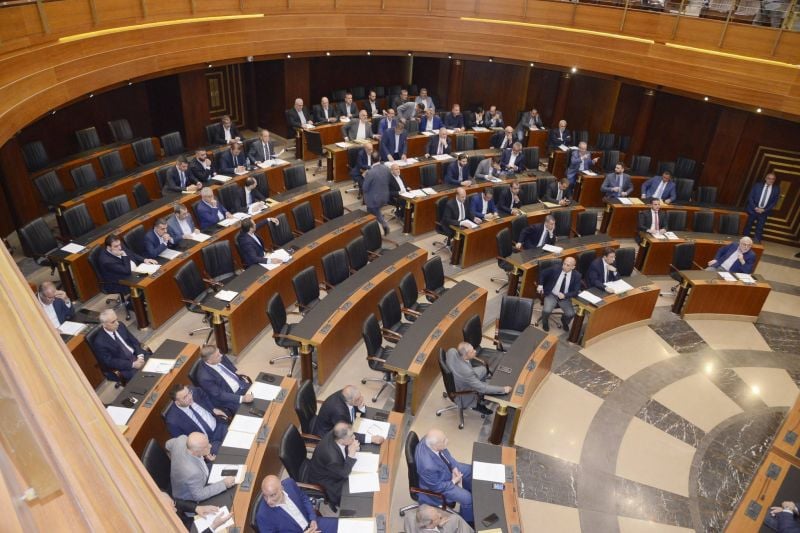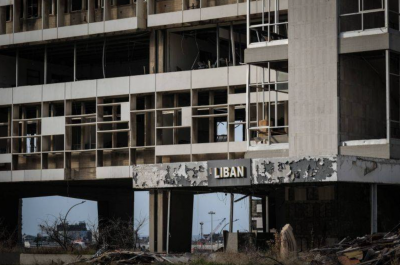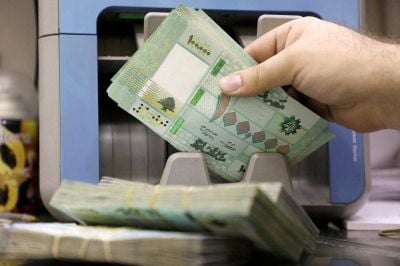
Lebanese MPs meeting on June 19, 2023, in Beirut. (Credit: Hassan Ibrahim/Lebanese Parliament)
During a meeting in Parliament on Monday, Lebanese MPs approved, without amendment, the two bills on the agenda enabling the provision of funding to cover expenditure to finance increases in civil servants' salaries.
The two bills were proposed outside of the yearly budget, which has yet to be adopted, and against a backdrop of crisis marked by a collapse of the Lebanese lira and repeated strikes by civil servants.
The session was boycotted by MPs from the Forces of Change bloc, the Lebanese Forces and the Kataeb, who considered it unconstitutional and argued that Parliament should first elect a president of Lebanon, since doing so is its sole remit until a new president is named. The presidency has been vacant since late October amid political tensions among Parliament's various parties and members.
Opening the session, Parliament Speaker and leader of the Amal Movement, Nabih Berri, criticized the position of these MPs, suggesting that they were invoking the Constitution solely to prevent the government from meeting and Parliament from legislating. "If we start answering them, we'll stop working," Berri added.
'The rights of 400,000 families'
Speaking at the end of the session, the head of the Finance and Budget Committee, MP Ibrahim Kanaan (FPM/Metn), stressed that with the adoption of the two bills, "the rights of 400,000 families" concerned by the increase in civil servants had taken precedence over "political divisions and differences of interpretation of the Constitution."
The session's agenda included two bills to commit public spending to be accounted for in the state budget for 2023, which should have been voted on by the end of January 2023 at the latest.
The first was endorsed by Parliament's Deputy Speaker Elias Bou Saab (FPM/Metn), former Finance Minister Ali Hassan Khalil (Amal/Marjayoun-Hasbaya), Jihad al-Samad (independent/Minyeh-Dinnieh) and Bilal Abdallah (PSP/Chouf). These four MPs also signed the second proposal, alongside Sagih Attieh (formerly Future/Akkar).
The text provides for the opening of over LL37,000 billion in credits (37,409,938,798,000 to be exact) to finance "temporary compensation for all civil servants and pensioners in receipt of a pension."
This expenditure will be met by an increase in revenues provided for in the 2023 budget.
The sum released is equivalent to more than $400 million at Monday's market rate and more than $430 million at the Sayrafa platform rate (LL86,300 to the dollar, according to the last update before the vote). It will also be used to cover expenses already incurred by the executive in 2023 to finance salaries and transport allowances for civil servants, but no further details have been made available on the amounts involved or their distribution.
The second bill provides for a total of LL265 billion ($2.85 million at the market rate and nearly $31 million at the latest Sayrafa rate) to go toward covering teachers' bonuses and transport allowances.
Lebanese public administrations regularly go on strike to demand measures enabling civil servants to cope with the serious socio-economic crisis into which the country has sunk since 2019. The Lebanese lira over that time has lost more than 90 percent of its value against the lira on the parallel market.
In the absence of a budget for 2023, Mikati's caretaker cabinet approved in April an increase in civil servants' salaries and transport allowances, a measure that requires the opening of additional credits.
In April and May, the executive also approved a two-stage increase in the minimum wage in the private sector, raising it to LL9 million a month.
Budget 2023
Regarding the 2023 budget, Mikati assured during the Parliament meeting that he would convene his cabinet for "successive meetings" to approve the preliminary draft budget, "which is ready and must be sent by the end of June by the caretaker Finance Minister [Youssef Khalil]." Once sent to the Serail, this text should be discussed by the cabinet — this process usually requires several meetings.
A final version of the draft budget will then be approved by the cabinet and sent to Parliament. There, it is generally up to parliamentary committees to study the draft. The committees may also devote several meetings to examining it before sending it to the plenary session for a final vote.
At the end of Monday's session, Kanaan pointed out that the draft budget approved by the government should have been sent to Parliament in September 2022, so that it could have been adopted by the legislature before the end of last year.
"The cabinet is not supposed to send us decisions or projects every day without us being able to know the actual figures, hence the need to adopt a budget," the MP explained.
The question of adopting new denominations for Lebanese lira banknotes was not discussed by MPs and this topic was not planned on session's agenda; however, a bill on the matter was approved in April by the parliamentary committees.

